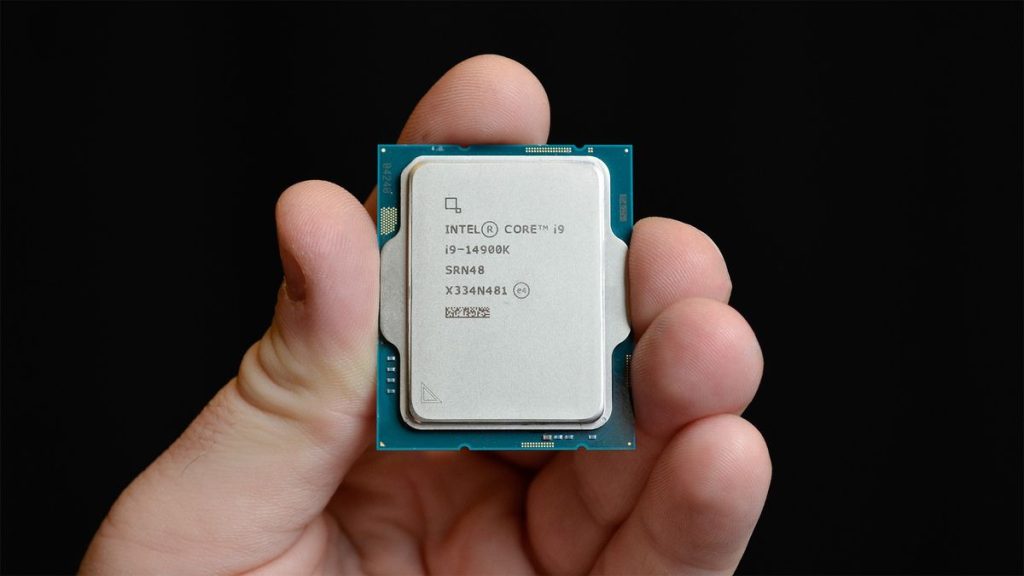It seems that Intel is not going to bring a new feature introduced with Raptor Lake Refresh (14th-gen) CPUs – one that can boost frame rates on supported games – to previous silicon generations.
This comes from Hardware Unboxed, the YouTube channel that performed some testing on Intel’s new APO (Application Performance Optimization) in which the tech demonstrated some impressive results in boosting frame rates.
Not only did Hardware Unboxed observe speedier frame rates with APO on – to the tune of 20% (others have pointed to 10% to 20% boosts) – it also noticed a 10% to 15% decrease in power usage for the Raptor Lake Refresh processor. Combined, that represents quite a leap in efficiency.
In short, this is a pretty big deal for gamers with 14th-gen processors, although there are a few caveats admittedly (which we’ll come back to).
What APO does is essentially to bring the efficiency cores on the CPU into play with greater effect. With the tech on, more efficiency cores are seen active, running at faster speeds (2GHz rather than 1GHz as shown in Hardware Unboxed’s test run in the video below), helping to take the load off the performance cores – and thus making those frame rate gains (and improving overall power efficiency).
The YouTube channel further points out that there’s no reason why, in theory, Intel couldn’t bring this to 12th-gen (Alder Lake) and 13th-gen (Raptor Lake) chips. These use the same socket, and the same architecture for the efficiency cores, so it should be feasible to bring the benefit of APO to those hybrid tech-toting generations, too.
Of course, Intel has released APO for 14th-gen silicon only, with no mention of anything else. That doesn’t mean that maybe, in time, Team Blue might port the tech across for previous generations, though, does it?
Well, with that in mind, Hardware Unboxed contacted Intel asking if this might happen, and if not, whether there was any technical reason why such a feat couldn’t be achieved.
Here’s the reply Hardware Unboxed received: “Intel has no plans to support prior generation products with Application Optimization.”
That’s disappointing, of course, in that it seems to fully rule out Raptor Lake or Alder Lake getting this nice juicy gaming benefit, and it doesn’t provide any reason why the move couldn’t be made.
Analysis: Computer says no
The more skeptical among us – Hardware Unboxed included – are then left to conclude that Intel is keeping APO as a 14th-gen exclusive to give gamers an incentive to buy Raptor Lake Refresh chips (which have made their mark on our list of the best processors, especially the 14700K).
Either that, or it might be a lot of work that Intel doesn’t fancy taking on. (But it’s difficult to see how, and as mentioned there don’t seem to be any major technical stumbling blocks – if there were, you’d think Intel would share them to give a better reason than just a simple ‘no, it’s not happening’).
All this seems rather unfair on those who’ve bought an older hybrid CPU and are left with less than ideal performance from their chip when it comes to gaming – or rather, some games.
Yes, here come the caveats. APO only works with supported games (currently Rainbow Six Siege and Metro Exodus, we’re not sure if others have been added in yet). It’s also a touch fiddly in that it first requires Intel’s Dynamic Tuning Technology driver installed, and then you can install APO from the Microsoft Store.
Still, there has been an outpouring of displeasure at previous hybrid CPU generations being left out in the cold. Maybe if enough noise is made, though, Intel might change its mind – or at least furnish us with decent reasons why APO can’t be ported to these slightly older CPUs.
Via Wccftech

